Estate Planning and Probate Attorney in North Miami | Morgan Legal Group
Welcome to Morgan Legal Group
Free consultation 24/7
Got a Problem? Consult With Us
For Assistance, Please Give us a call or schedule a virtual appointment.
Recognition






About Us
Morgan Legal Group is a trusted law firm specializing in estate planning and probate services in North Miami, Florida. Our team of experienced attorneys is dedicated to providing personalized legal solutions to meet the unique needs of our clients. With a focus on professionalism, integrity, and client satisfaction, we strive to deliver exceptional service and results in every case.
Why Choose Us
When it comes to estate planning and probate matters, Morgan Legal Group stands out for several reasons:
Personalized Approach
We understand that every client has unique goals and concerns when it comes to estate planning and probate. That’s why we take a personalized approach to every case, tailoring our strategies to meet the specific needs and objectives of each individual client. With us, you can expect personalized attention and customized solutions that address your unique circumstances.
Experienced Team
Our team of attorneys brings years of experience and expertise to the table in the field of estate planning and probate law. We have a deep understanding of the complexities involved in these areas of law and have successfully handled a wide range of cases for clients throughout North Miami. You can trust us to provide you with knowledgeable guidance and effective representation every step of the way.
Client-Centered Approach
At Morgan Legal Group, our clients always come first. We prioritize open communication, transparency, and responsiveness in all our interactions. We take the time to listen to your concerns, answer your questions, and keep you informed about the progress of your case. With us, you can rest assured that your legal matters are in good hands.
Confidence in the legal field. We protect you from problems!

How we work:
Our approach to estate planning and probate is client-focused, thorough, and designed to achieve the best possible outcomes. Here's how we work with our clients:
Step 1: Initial Consultation
We begin by scheduling an initial consultation with each client to discuss their estate planning or probate needs. During this meeting, we take the time to understand your goals, concerns, and priorities, and gather all the necessary information to develop a customized legal strategy.
Step 2: Customized Planning
Based on the information gathered during the initial consultation, we develop a customized estate plan or probate strategy tailored to your specific needs and objectives. We explain all available options and guide you through the decision-making process to ensure that your plan meets your goals.
Step 3: Implementation and Review
Once your estate plan is finalized or the probate process is underway, we provide dedicated support and representation throughout the implementation phase. We ensure that all legal documents are properly executed and that your wishes are accurately reflected. We also offer ongoing review and updates as needed to ensure your plan remains current and effective.
Get in Touch
Contact us
If you’re in need of estate planning or probate services in North Miami, Florida, contact Morgan Legal Group today. Our experienced attorneys are here to provide you with the guidance and support you need to protect your legacy and secure your family’s future.
Frequently Asked Questions
What is estate planning, and why is it important?
Estate planning is the process of arranging for the management and disposal of a person’s estate during their life and after death. It involves making decisions about how assets will be distributed, who will manage them, and who will make decisions in case of incapacity.
Do I need a will if I don't have many assets?
Yes, having a will is important regardless of the size of your estate. A will allows you to specify how you want your assets to be distributed and who will be responsible for carrying out your wishes. Without a will, state law will determine how your assets are distributed, which may not align with your preferences.
What documents are included in an estate plan?
An estate plan typically includes a will, a durable power of attorney, a healthcare directive, and possibly trusts or other legal arrangements depending on your specific circumstances.
Can I make changes to my estate plan after it's been finalized?
Yes, you can make changes to your estate plan at any time by consulting with your attorney to update your legal documents.
What is probate, and how does it work?
Probate is the legal process of administering the estate of a deceased person, resolving any claims against the estate, and distributing the deceased person’s property according to their will or the laws of intestacy.
How can I avoid probate?
There are several strategies available to help individuals avoid probate, such as creating a living trust, designating beneficiaries on accounts and assets, and making lifetime gifts.
What is a trust, and do I need one?
A trust is a legal arrangement in which one person, the trustee, holds legal title to property for the benefit of another person, the beneficiary. Trusts can be useful estate planning tools for managing and distributing assets, providing for minor children or beneficiaries with special needs, and avoiding probate.
What happens if someone dies without a will?
If someone dies without a will, their estate will be distributed according to the laws of intestacy, which may not reflect their wishes. The court will appoint an administrator to manage the estate and distribute assets to heirs based on state law.
How can I protect my assets from creditors?
There are various legal strategies available to help individuals protect their assets from creditors, such as creating asset protection trusts, gifting assets, and structuring ownership of assets in a way that limits liability.
What is the role of an executor in the probate process?
An executor is responsible for managing the probate process, including collecting and inventorying assets, paying debts and taxes, and distributing assets to beneficiaries according to the terms of the will or state law.
Recognition







